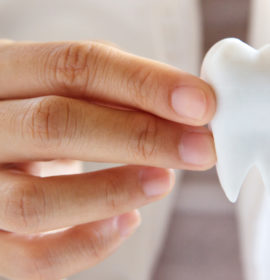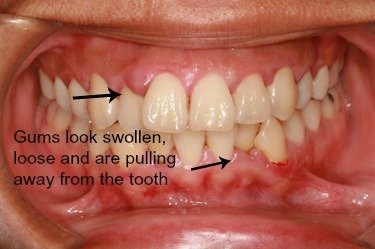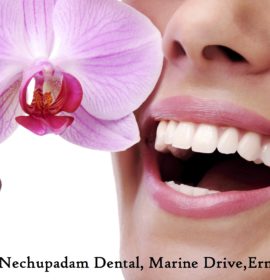
What are gingivitis and gum disease?
Cosmetic Dentistry . Dental Restoration . Dentistry . gingivitis . gum disease . Preventive Dentistry

Gingivitis is an early stage of gum disease that can directly affect your oral health and overall health.
Gingivitis is the inflammation of the gum tissue surrounding the teeth. This swelling is often caused by the build-up of plaque. If it left untreated, gingivitis can develop into more severe form of gum disease, known as periodontitis, which is a major cause of tooth loss in adults. Gingivitis is often painless, so if you exhibit any signs or symptoms be sure to visit Dr.Nechupadam Dental,Marine Drive for a proper assessment and to determine a course of treatment.
Signs and Symptoms of Gingivitis

When gingivitis progresses to periodontitis, the gums begin to pull away from the teeth, creating small pockets. Bacteria can then become trapped in these pockets, weakening the bone supporting the teeth.
Do you know how Gingivitis and Gum Disease Develop?

Gingivitis is commonly caused by the build-up of plaque. Plaque is an extremely sticky, colorless to pale yellow deposit of bacteria that regularly forms on your teeth.
The bacteria produce acids that attack your tooth enamel and can damage the gums. This damage has the possibility of becoming permanent if left untreated.
Other causes of gingivitis include hormonal changes, illnesses, smoking, taking certain medications, bad brushing habits, and genetics.
There are ways for Prevention of Gingivitis and Gum Disease

After proper diagnosis of gingivitis, it is important to start treating it immediately.
Here are some other tips for how to help treat and prevent gingivitis and gum disease.
1. Brush twice a day with a soft-bristled manual or electric toothbrush.
2. Be sure to use an anti-gingivitis and anti-plaque toothpaste containing fluoride to strengthen teeth and prevent the damage that bacteria in plaque causes.
3. After brushing, rinse thoroughly with an anti-bacterial rinse to help fight plaque, gingivitis, and bad breath.
4. Floss at least once a day to remove food particles and plaque between teeth.
5. Please note that your gums may continue to bleed for a period of time; however, it is important to keep brushing and flossing. Removing plaque is essential to improving gum health.





